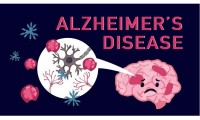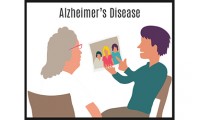-
FDA Grants Breakthrough Therapy Designation to Pfizer’s Investigational Alzheimer’s Disease Treatment
- Source: drugdu
- 252
- March 22, 2023
-
Roche teams up with Lilly to validate Alzheimer’s blood test
- Source: drugdu
- 144
- March 22, 2023
-
Scientists Develop New Blood Test for Detecting Alzheimer’s Disease
- Source: drugdu
- 138
- March 21, 2023
-
Closing In On The Cause Of Alzheimer’s Disease
- Source: drugdu
- 404
- December 2, 2020
-
Mouse study tests a novel approach against Alzheimer’s
- Source: drugdu
- 1,895
- December 13, 2019
-
Regular daytime nap might lead to Alzheimer disease
- Source: drugdu
- 1,273
- September 10, 2018
-
Breakthrough Device Designation Granted to Digital Intervention for Alzheimer’s
- Source: MobiHealthNews
- 1,340
- August 27, 2018
-
Experimental Drug to Treat Alzheimer Disease
- Source: NBCNews
- 692
- August 1, 2018
-
Monoclonal Antibody Delays Cognitive Decline, Erases Alzheimer’s Plaques in Phase 2 Trial
- Source: MDEdge
- 956
- July 30, 2018
your submission has already been received.
OK
Subscribe
Please enter a valid Email address!
Submit
The most relevant industry news & insight will be sent to you every two weeks.













